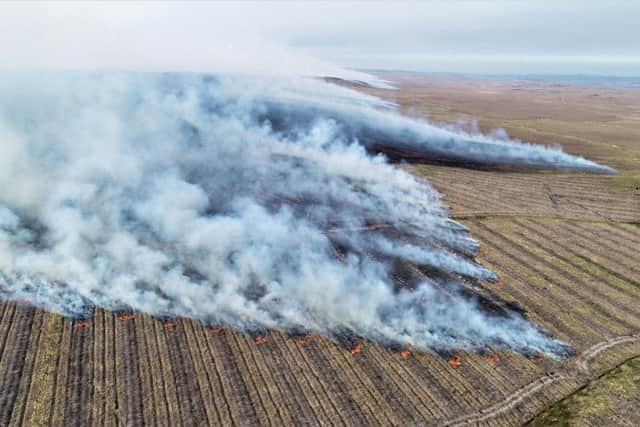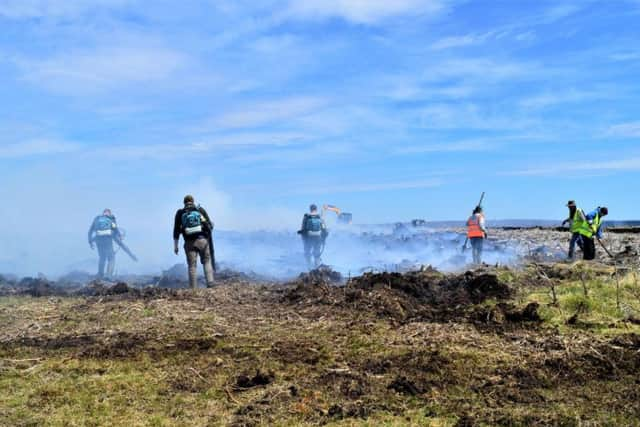Single wildfire 'could have released carbon equivalent to six days' worth of Scotland's total emissions'
Analysis for WWF by Ricardo assessed the impact of a wildfire on the scale of the one which burnt for almost six days on part of the Flow Country in the far north of Scotland in May this year.
The Flow Country is estimated to store 400 million tonnes of carbon and is under consideration for World Heritage Site status for its globally-rare type of blanket peatland.
Advertisement
Hide AdAdvertisement
Hide AdThe study used an approach based on International Panel on Climate Change (IPCC) methods and estimated that 174,000 tonnes of carbon was lost from the peatland into the atmosphere during the fire.


This is the equivalent of 6.2 days of daily average greenhouse gas emissions in Scotland.
WWF Scotland is now calling for urgent action to protect and restore peatlands, described as "vital carbon stores", including increased, multi-year funding from the Scottish Government of at least £20 million per year.
Gina Hanrahan, head of policy for WWF Scotland, said: "We're facing twin climate and nature crises. People and nature in the UK are already feeling the impacts of climate change, and we have little time left to act if we are to avoid its worst effects.


"This analysis puts into stark figures the importance of our peatlands and the huge cost to climate and nature when something goes wrong."
She added: "How we manage and care for our peatlands influences their effect on climate change, as well as fire risk and how the habitat responds, so protecting and restoring peatlands needs to be a vital part of our response to both the climate and nature crises."
WWF Scotland said that the level of climate emissions from peatland wildfires can depend on the severity of the fire and prior condition of the peat.
Healthy peatlands in good condition will release around five times less carbon during wildfires, compared to a peat bog that has been drained.
Advertisement
Hide AdAdvertisement
Hide AdMore severe fires will leave bare peat, damaging the ability of peatlands to take carbon out the atmosphere, and needing restoration to return the peatland to good health more quickly.
Delivering climate change ambitions
A Scottish Government spokesman said: "Restoring peatland has an important part to play in delivering the our climate change ambitions. The impact of peatland degradation on climate change cannot be overstated - particularly in Scotland, where around 25% of the country is covered in peat soil. If all of the C02 from that peatland were released then it would be the equivalent of more than 120 years of our emissions being released at once.
"We are committed to delivering the peatland restoration targets set out in the Climate Change Plan. We are currently updating our Climate Change Plan which will set out detailed actions to deliver on our climate change ambitions.
"In addition, as set out in our Programme for Government, with increased temperatures and changes to our weather, there is an increased risk of wildfire in Scotland.
"The Scottish Fire and Rescue Service will develop a wildfires strategy to ensure it can respond to these new and increased risks."